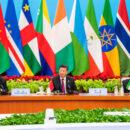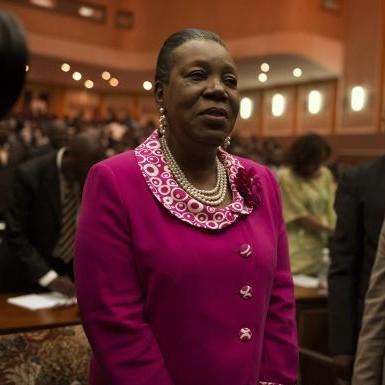How the death penalty is slowly weakening its grip on Africa – By Thomas Probert

 At both global and continental levels there is an observable trend towards the abolition of the death penalty. More than two thirds of all states have now either abolished the practice or have long-standing moratoria on its use. Though Amnesty International reported a slight increase in the actual number of executions last year, the overall decline is unmistakable.
At both global and continental levels there is an observable trend towards the abolition of the death penalty. More than two thirds of all states have now either abolished the practice or have long-standing moratoria on its use. Though Amnesty International reported a slight increase in the actual number of executions last year, the overall decline is unmistakable.
This trend of state practice can be read in conjunction with an interpretation of international human rights law as progressively abolitionist. At the time of its drafting the International Covenant on Civil and Political Rights (ICCPR) made a provision for countries which had not already abolished the death penalty, but established stringent conditions under which it could continue. Article 6 was also drafted in such a way that it envisages and indeed facilitates the abolition of the death penalty over time.
In those countries where it remains, international safeguards have both a procedural component, centred on the requirements of legality and fair trial, and also a substantive component entailing imposition only for the most serious crimes, principles of equality and consistency, and minimum standards of protection for vulnerable groups (including those with mental illness, the focus of Friday’s World Day against the Death Penalty).
The African Commission on Human and Peoples’ Rights has acknowledged “the evolution of international law and the trend towards abolition of the death penalty” and has encouraged that trend with recommendations calling for moratoria on its use. Earlier this year, one of the Commission’s Working Groups convened in Cotonou, Benin, to finalise the text of an Optional Protocol to the African Charter on the abolition of the death penalty. That process was positively received by a broad array of civil society actors, and will now be finalised by the African Union.
As of October 2014, seventeen African states have abolished the death penalty by enacting national legislation. A further twenty-five State Parties have not carried out an execution for ten years. That leaves only twelve states””Botswana, Egypt, Equatorial Guinea, Ethiopia, The Gambia, Libya, Nigeria, Somalia, Sudan, South Sudan, Uganda and Zimbabwe””which retain the death penalty and have recently used it.
Africa accounted for only 8% of the executions known to have taken place in 2013, (a figure which excludes executions in China). Of those 64 executions, 55 took place either in Somalia or Sudan.
On the international stage, ten of Africa’s abolitionist states have also ratified the Second Optional Protocol to the ICCPR on the abolition of the death penalty, with Gabon the most recent, earlier this year.
Despite these promising trends, and the general optimism of the international community about the trajectory of the death penalty, it is important not to overlook the shadow that it still casts. Where it remains, it is a cause for concern that the death penalty can be imposed for offenses which do not meet the international legal threshold of “most serious crimes”””a term which is understood to mean only those involving intentional killing.
The case of Meriam Ibrahim, who was sentenced to death for apostasy in Sudan, brought this issue to global headlines earlier this year. The imposition of the death penalty by military tribunals””which have been found unable to meet international standards of due process for civilian matters””remains a cause of concern, particularly in Somalia.
The lack of due process within capital cases has proved a concern elsewhere on the continent. The mass-sentencing of more than 600 people in Egypt was an extreme case, but the UN has also, for example, expressed concerns that the judicial system in South Sudan is too weak to provide sufficient protection against arbitrary death sentences.
Moreover, while moratoria on executions are to be welcomed, if they are not accompanied by a change in judicial practice, long-term moratoria result in a very large number of people languishing on “death row”, a condition which may amount to cruel, inhuman or degrading treatment. It is estimated that there are several thousand people on death row in Kenya, and hundreds in Algeria, Tanzania and the DRC.
But these reflections should not detract from the many positive developments which continue across much of the rest of the continent. Over the past year there has been an ongoing review of the penal code in Comoros, and the constitution in Sierra Leone. A constitutional amendment has been proposed to abolish the death penalty in Ghana.
Last month a new penal code was approved by parliamentarians in Chad that made no allowance for the death penalty, and would effectively abolish it. While other elements of this penal code give human rights activists cause for concern, the step taken towards formal abolition should be welcomed.
In May a workshop was convened in Tunisia to discuss the reform of the Penal Code, and a reduction of the number of crimes for which the death penalty might be imposed. A Parliamentary Network for Abolition is also gaining strength in Morocco. The presence of openly abolitionist Ministers of Justice in Zimababwe (Emmerson Mnangagwa) and Tanzania (Mathias Chikawe) should also be regarded in a positive light.
A number of other African states have accepted recommendations made under the UN Human Rights Council’s Universal Periodic Review (UPR) either to work toward abolition at a national level or to make binding international commitments regarding the death penalty. If these commitments in Geneva are translated into actual policy in national capitals then the continent could soon witness a significant shift in terms of the status of the death penalty. Its grip, in this sense, is weakening.
It must be said that campaigning for the abolition of the death penalty has a certain allure for those working in human rights. The very clear cut (and usually transparent) distinction between retentionist and abolitionist states permits a Manichean view of the work. The very uplifting transition of a state from one camp to another””a progression which international law mandates should only occur in one direction””presents activists with an unusually unambiguous “win”. However, it is important to bear in mind that a focus on the number of abolitionist states, designed to make the problem appear one concerning an ever-diminishing proportion of the world, can partially disguise the human cost of its continued practice.
From the perspective of the right to life, a focus on the death penalty can also be reductionist. Capital punishment is by no means the most significant threat to life in Africa, claiming fewer than 250 lives over the past seven years. In this regard, the enlargement of the mandate of the African Commission’s Working Group on the Death Penalty also to include Extrajudicial, Summary or Arbitrary Killings, was a welcome development. It allows the Commission to address other violations of the right to life, such as the excessive use of force by law enforcement. In its response to mass public demonstrations in September last year, for example, Sudanese authorities are believed to have killed at least twice as many people as have been executed in that country since 2007.
The symbolic significance of the death penalty, however, should not be underestimated. Its abolition in an increasing number of countries in Africa and around the world reflects an evolving understanding of the relationship between the state and the citizen, and one which can only have a beneficial impact on the enjoyment of the right to life, as well as other human rights.
Dr Thomas Probert is a Senior Researcher at the Centre for Human Rights (University of Pretoria) and a Research Associate at the Centre of Governance and Human Rights (University of Cambridge). He works as a research consultant to the UN Special Rapporteur on extrajudicial, summary or arbitrary executions and occasionally tweets @tjwprobert






